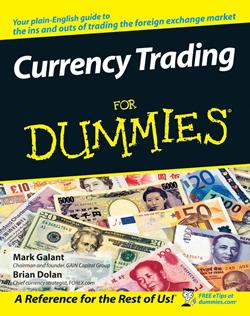How banks make money for dummies
The turbulence in the global financial market has caused an alternative system of financial intermediation to receive increased prominence in recent years — that of Islamic banking and finance.
Islamic financial institutions are organisations that are based, in their objectives and operations, on the rulings of Islamic law: For example, Sharia law prohibits Muslims entering into interest-bearing loans. The laws of Islam are firmly based upon the Sharia and are deemed to be in the interests of the people as a whole.
For finance, the consequence of this is that many of the traditional areas of corporate finance such as bank loans and leasing transactions found in Westernised banks are, in fact, much different in Islamic finance, simply because organisations governed by Islamic finance are not allowed to make money from money. The term murabaha refers to a form of trade credit or loan in which the Islamic bank takes constructive or physical ownership of the asset.
The asset is then subsequently sold on to a buyer for a profit and that person is allowed to pay the bank over a set number of payments. One way of raising debt finance for a company working within the Western finance tradition is to issue bonds.
In this situation, the bondholder receives interest and this interest is always paid before dividends are paid to the shareholders. Instead, Islamic bonds known as s ukuk are linked to an underlying asset, which is structured so that the sukuk holder is a partial owner of the underlying asset.
Profit is linked to the performance of that underlying asset. However, the Islamic finance industry has been shaken by defaults and restructurings appearing in the sukuk market. At the time of writing, a court in Louisiana was deciding what rights if any the loan note holders had because there is uncertainty as to whether the issuer of the notes is bankruptcy-remote and whether a true sale of the assets had taken place.
Make Purchases with Cost Plus Profit (Murabaha) Contracts - dummies
The word riba in Islamic law means an addition over and above principal. Islamic banks must conform to Sharia law and, as a result, to the following six principles: The sharing of profits and losses must be at the heart of the Islamic banking system.
All financial transactions must be asset-backed. Speculative behaviour is forbidden and so options and futures are prohibited in Islamic finance.
Islamic laws strictly prohibit investments connected with gambling, liquor or tobacco, too. In a legal sense, a hawala can be a bill of exchange, cheque, draft or promissory note. Hawala is a mechanism that can be used in order to set up international accounts by book transfer. To a large extent, this approach removes the need to transfer physical cash. Technically, debtors pass on the responsibility of payment of their debt to a third party who owes the former a debt; hence, the responsibility of payment is shifted to a third party.
This arrangement is unique because no form of financial instrument is exchanged; the transaction takes place entirely on the honour system a system based on trust, honour and honesty. Trust and the extensive use of connections such as family relations are the components that make it completely different from other remittance systems. In the Western tradition, banks make money by charging interest on loans.
A simple example is a house mortgage: Islamic banks are strictly forbidden to charge interest.
How the banks make the big bucksInstead, the concept of profit and loss sharing comes into play. Hence, a partnership exists between the Islamic bank and its depositors and also between the bank and its investment clients. When a Western bank or finance house invests in a project, the investor the bank or finance house is assured of a predetermined rate of interest and the investee bears all risk.

The investor receives a predetermined return regardless of whether the project succeeds or fails. In Islamic banking, the investor and the investee share the results of the project in an equitable way. Where a project makes a profit, both parties share in this profit in predetermined proportions.

On the flip side, if a project makes a loss, the investor bears the loss by way of no repayments, with the investee bearing the loss by receiving no wage or salary. In the West, companies often lease assets to use in their business. The leasing agreement usually makes provisions for the lessee the company leasing the equipment to pay the lessor the owner of the equipment periodic payments, which contain the capital element and the interest element.
Personal Finance - How To Information | eHow
Islamic finance prohibits interest-bearing finance and has its own the equivalent of lease finance. Ijara is a form of leasing involving a transfer of ownership of a service for a specified period of time for an agreed lawful consideration. Instead of making provisions for the payment of capital amounts and interest, this arrangement allows the financial institution to earn profits by charging rent on the asset leased to the customer.
During the period of the lease the leasing company still owns the asset but the lessee has the right to use it. When the leasing agreement expires, the right to use the asset goes back to the lessor. An Islamic lease often looks like an operating lease where the risks and rewards of ownership remain with the leasing company.
But the redemption features of an Islamic lease can be structured in such a way to make it look like a finance lease where the risks and rewards of ownership of the leased asset pass to the lessee. Toggle navigation Search Submit.

Learn Art Center Crafts Education Languages Photography Test Prep. RELATED ARTICLES 10 Key Points about Islamic Finance. Corporate Finance For Dummies Cheat Sheet UK Edition. Looking at Capital Investment and Tax. Manipulating the Financial Statements. Managing Business Cash Effectively.